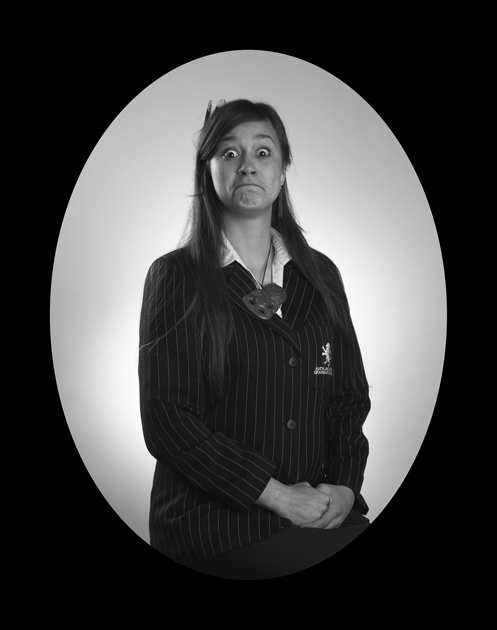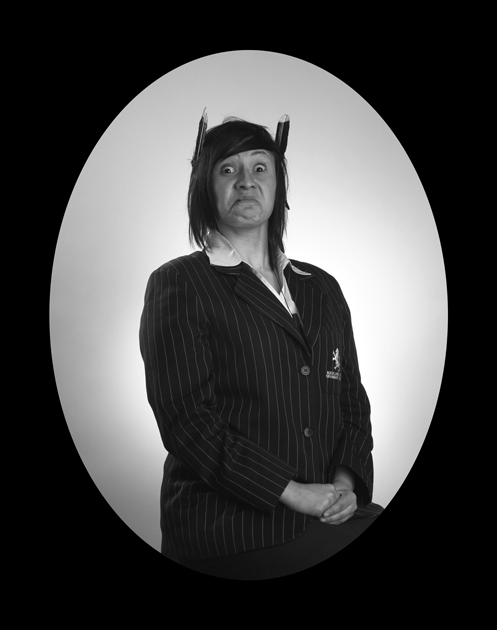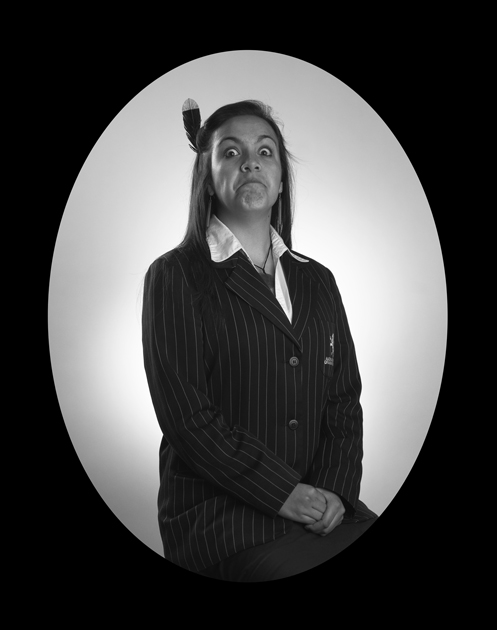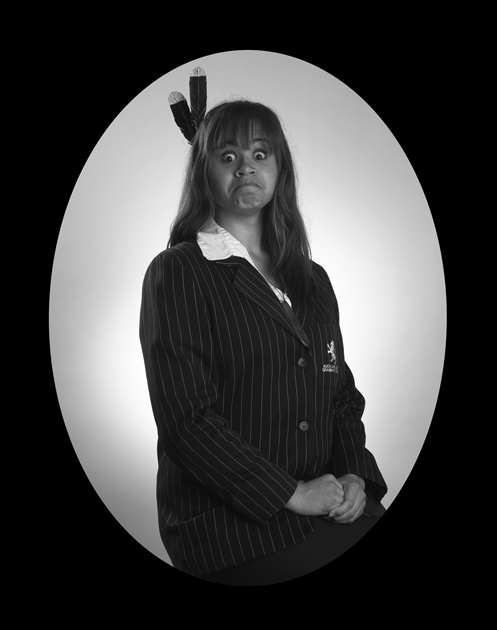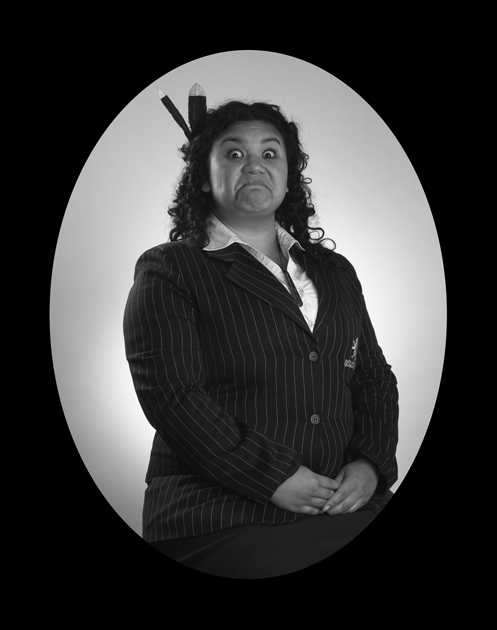rt
Set within the context of historical Māori portraiture, the work addresses surface understandings of cultural identities. Challenging various stereotypes or categories developed within historical commercial photographic imagery, “ Māori ” represents Māori from a Māori perspective. Influenced by the apparent aesthetics of historical Māori portraiture, with particular reference to posing and styling, it was decided to explore these visually in the company of contemporary Māori identities. Later confining these subjects to the format of an oval, was a clear reference to the formal aesthetics specific to the paintings of Charles Goldie and the introduction of a Victorian style.
Te Ao Māori is central to the work investigating the development of traditional concepts of ihi and wehi through evolution of contemporary Maori identities. Ihi refers to the total personality of a person and their quality of excellence. Wehi is the effect that one person’s influence has on another. Together, they generate individuality. The subjects express pūkana in their formal portraits, a form of cultural and self-expression and assertion.
The evolution of cultural representation is examined when investigating how biculturalism exists within their lives. How does one achieve a bicultural ‘surface’ or sense of representation? Is it a consequence of being one or the other? Represented in their school uniform, adorned with Māori taonga (treasures), styled like their ancestors, replica Huia feathers in their hair, the subjects communicate their contemporary identities. Demonstrating both confidence and pride, they appear comfortable with their current clothing, context and setting.
The work intends to remind us that these individuals are as I say, individuals. They are real people who exist within this urban reality of both Māori and Pākehā. They are who they are, as we see them. Expressing what we understand as obviously Māori - pūkana. Jess, Kahu, Maioha, Amber, Ramari and Eden remind us of the diversity of this urban reality. That their Māoritanga is underlying. The subtitled quote is evidence of a collaborative engagement and provides insight into the subject’s voice. With or without being what may be understood as ‘obviously Māori’, they still identify as Māori.
A Reality.
Māori.
Deane-Rose Ngatai
